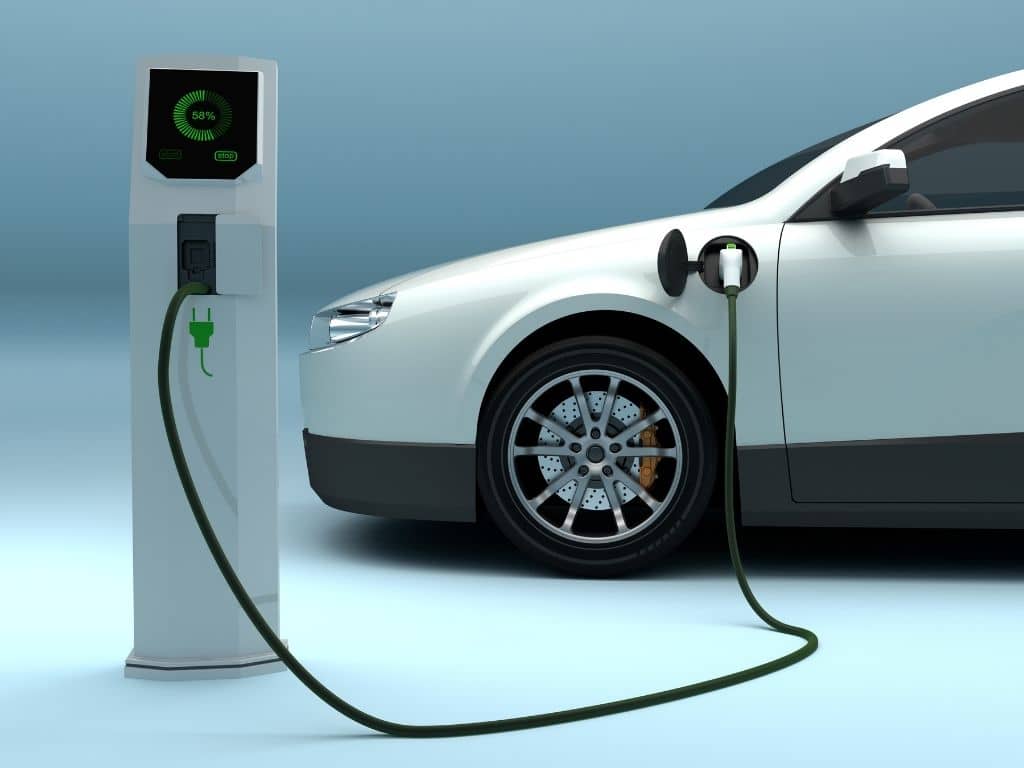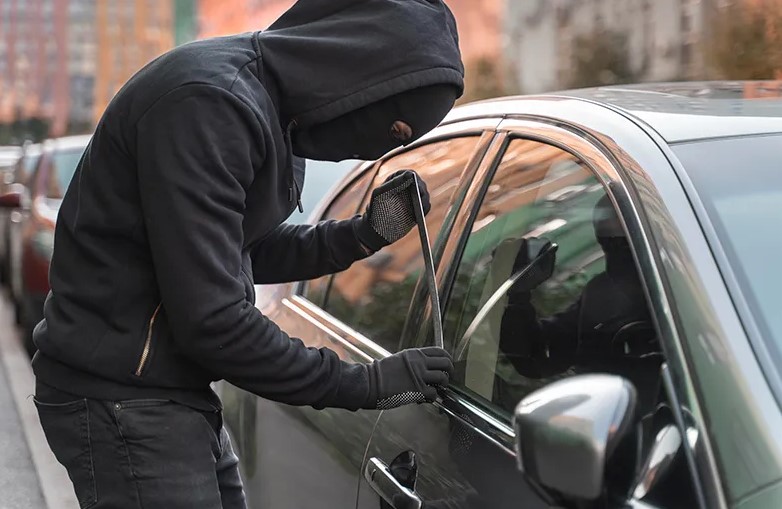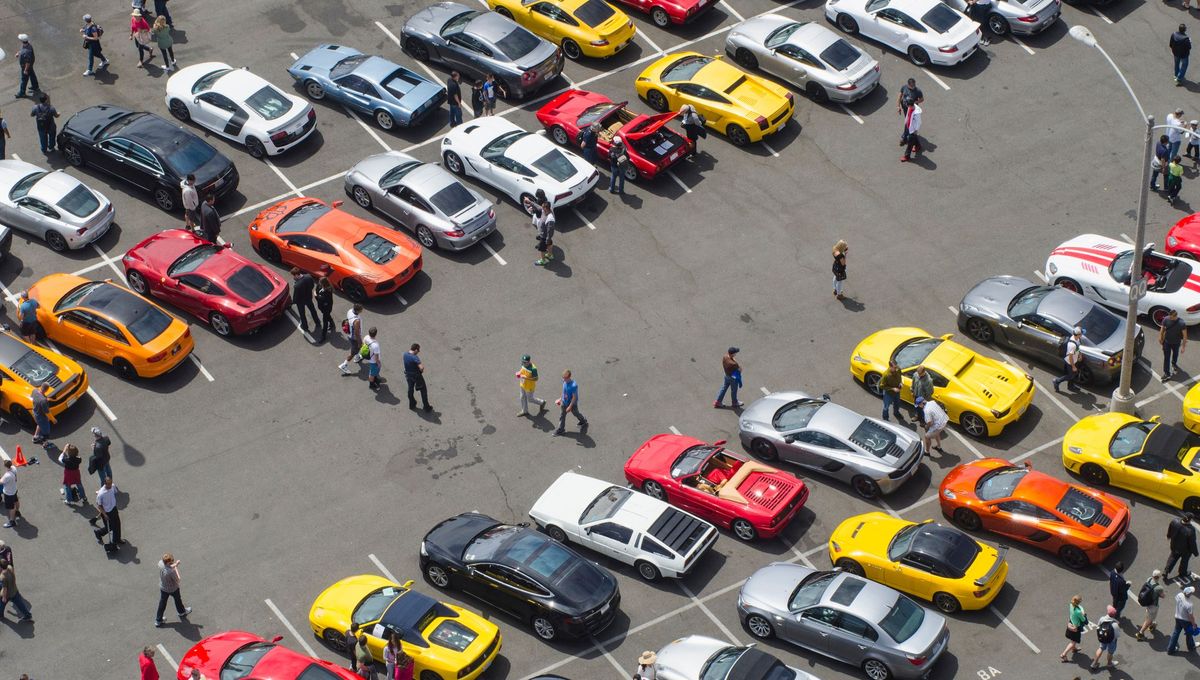
Luxembourg: Europe's Champion in Family Benefits

Reduction in Government Subsidies for Electric Vehicles: Luxembourg's New Policy Changes

Luxembourg Police Warning: Increase in Car Thefts in Various Areas

Luxembourg's 180-Degree Turn on Recognizing Palestine: Strong Diplomatic Moves by Xavier Bettel

Luxembourg's Water Contaminated with a Hazardous Chemical

Used Car Festival in Luxembourg: A Unique Opportunity for Buyers
Used Car Festival in Luxembourg: A Unique Opportunity for Buyers

Luxembourg - June 3, 2024
As the summer season begins, Luxembourg is set to host the twelfth edition of the Used Car Festival, which will be extended to two weeks this year. This event will run from June 3 to June 15 for twelve working days and will also be open on the weekend of June 8 and 9 at Daïchwisen, Ettelbruck, welcoming enthusiasts and buyers.
Wider Selection and More Time
This festival is extended to two weeks to give buyers more time to choose and purchase used cars. Philippe Mersch, President of the Federation of Automobile Distributors and Mobility (Fedamo), stated that the delays in the delivery of new cars, which were caused by the Covid crisis and the Ukraine war, have now decreased, and new cars are available in the market.
Return to Normalcy
The rotation of leased cars has returned to normal, and the natural renewal of the fleet has contributed to the increased availability of used cars. Although the market remains under pressure and prices are fluctuating, this festival provides a perfect opportunity for buyers to take advantage of special discounts and offers. Philippe Mersch noted, "Price fluctuations make it difficult to determine residual value or purchase prices, but customers should benefit from attractive tariffs."
Introduction of Electric Cars to the Used Market
One of the standout features of this festival edition is the extensive presence of electric cars. These vehicles are relatively new, and their initial owners have benefited from government subsidies, making prices more attractive for new customers. Philippe Mersch added, "Concerns about battery capacity reduction exist, but testing them is possible, and there are not many issues in this regard. Long-term warranties for new cars also remain valid."
Buying Recommendations from the Festival
At this festival, buyers can choose from various types of used cars, from affordable vehicles to luxury and electric cars. To make the best use of this opportunity, buyers are advised to:
- Research and Compare: Compare the specifications and prices of cars before purchasing.
- Test Drive: Ensure you test drive the car to confirm its quality and performance.
- Review Documents: Check the documents and service history of the car.
- Consult Specialists: Seek help from experts and advisors available at the festival.
This festival presents a unique opportunity to purchase used cars under special conditions and at suitable prices. Don't miss out on this chance to find your desired car.
Luxembourg's Water Contaminated with a Hazardous Chemical

Luxembourg - June 3, 2024
A newly released report reveals that both surface and groundwater in Luxembourg are heavily contaminated with a highly persistent chemical known as trifluoroacetic acid (TFA). This report, prepared by the Pesticide Action Network Europe (PAN Europe) and its members, including Luxembourg's Ecological Movement, indicates widespread contamination of European waters with this chemical, described as "the largest known water contamination in Europe by a human-made chemical."
Source and Use of TFA
Trifluoroacetic acid (TFA) is a degradation product of PFAS compounds, often referred to as "forever pollutants." TFA also serves as a precursor for manufacturing some PFAS substances. The findings of this research indicate a troubling extent of contamination that necessitates decisive action. TFA can originate from the degradation of PFAS pesticides, which are used in agriculture for their stability, and from certain refrigerant gases or industrial waste resulting from PFAS production.
Research Findings
Research conducted by the Karlsruhe Water Technology Center has shown that TFA is present in all samples of surface and groundwater, with concentrations ranging from 370 nanograms per liter (ng/l) to 3,300 ng/l. In Luxembourg, the concentration of TFA in the Alzette River exceeds 1,200 ng/l, and in groundwater, it is around 1,000 ng/l. These levels are significantly higher than the maximum limit of 500 ng/l set by the European Drinking Water Directive.
Environmental and Health Concerns
This issue has drawn criticism from environmental organizations because TFA is highly persistent in the environment and cannot be removed using standard drinking water treatment processes. Moreover, the toxicological profile of TFA leaves many questions unanswered.
Health Concerns
According to studies, TFA can cause "ocular abnormalities" in rabbits, but no definitive conclusions have been reached about its effects on humans. The report warns that without decisive measures to reduce TFA inputs, contamination will increase day by day. The first proposed step is the rapid ban of PFAS pesticides and fluorinated gases.
Conclusion
This report highlights a significant environmental crisis in Europe that requires immediate and decisive action. As one of the affected countries, Luxembourg must take steps to reduce this contamination and protect its water resources.
Luxembourg's 180-Degree Turn on Recognizing Palestine: Strong Diplomatic Moves by Xavier Bettel

Luxembourg - June 3, 2024
Luxembourg has taken a significant step in Middle Eastern diplomacy by forming a coalition of countries to recognize the State of Palestine and adopting a firm stance against Israel. This move comes amidst rising pressures from opponents.
When Will Palestine Be Recognized?
While countries like Spain, Ireland, and Norway have already recognized the State of Palestine, this issue has sparked considerable debate in Luxembourg. Even within the ruling coalition (DP-CSV), there have been discussions and disagreements, and the government, similar to France, has adopted a policy of delay and wait.
However, following the bombing of a refugee camp in Rafah by Israel, which elicited international reactions, Luxembourg announced its active participation in this significant and symbolic decision. The Luxembourg Ministry of Foreign Affairs stated, "The issue of recognition is also on the table. We must be aware that this is a key tool that we can only use once, and it is therefore essential that this action contributes to peace and a two-state solution and has a real impact." The ministry also emphasized that Luxembourg is currently working on forming an international coalition of countries that support the recognition of Palestine.
International and Domestic Pressures
The question of "when" remains uncertain, but many voices are urging countries like Luxembourg and France to "create the moment." While the West remains cautious, 145 out of 193 UN member states have recognized Palestine. In this context, Sam Tanson, a member of parliament and the Green Party, questioned Xavier Bettel about the conditions for recognizing Palestine and raised concerns about "inconsistent or even contradictory" statements.
Criticism and Diplomatic Efforts
The Luxembourg Ministry of Foreign Affairs has faced criticism from opponents for not being firm enough against Israel. Nonetheless, the Luxembourg Foreign Minister continues diplomatic efforts to resolve the conflict through dialogue with representatives from neighboring Arab countries. The ministry highlighted, "A pragmatic approach based on dialogue is being pursued to achieve tangible results."
Rafah Attack: "An Unacceptable Assault"
During his latest visit, the Luxembourg Foreign Minister adopted a firmer stance against Israel. The Ministry of Foreign Affairs described the attack on Rafah as "an unacceptable assault" and called on Israeli authorities to halt their offensives in the southern Gaza Strip, as demanded by the International Court of Justice (ICJ).
The Issue of Netanyahu's Arrest
Regarding the potential issuance of an arrest warrant for Benjamin Netanyahu and his Defense Minister, the Ministry of Foreign Affairs stressed the importance of judicial independence and announced that Luxembourg, as a founding member of the International Criminal Court (ICC), fully supports the court's work. "The decision now lies with the ICC's Pre-Trial Chamber and should not be subject to any interference."
These developments highlight Luxembourg's 180-degree shift from its previous stance on recognizing Palestine as a state. Luxembourg aims to bolster its role in the Middle East and support a two-state solution through continuous diplomatic efforts. However, numerous challenges and pressures remain ahead.
Luxembourg Police Warning: Increase in Car Thefts in Various Areas

Luxembourg - June 3, 2024
In recent days, there has been a wave of car thefts reported in Luxembourg, causing significant concern among drivers. The Grand Duchy of Luxembourg Police has announced that several incidents of car theft have occurred in different parts of the city.
Security Measures to Prevent Car Theft
The Luxembourg Police recommend that drivers take the following preventive measures to reduce the risk of theft:
Use Locked Garages: Whenever possible, park your vehicles in locked garages.
Park in Well-Lit and Busy Areas: Choose well-lit and busy streets for parking your car to make it harder for thieves to access your vehicle.
Always Lock Your Vehicle: Always lock your car, even if you are leaving it for a short period.
Close All Doors and Windows: Ensure that all doors, windows, and the trunk of your car are properly closed.
Activate the Alarm System: If possible, activate your car’s alarm system to alert you in case of theft.
Do Not Leave Valuables in the Car: Avoid leaving valuable and visible items in your car.
Report Suspicious Activities: Immediately report any suspicious activities to the police.
Increasing Vigilance
With the rise in car thefts in Luxembourg, implementing security measures and maintaining heightened awareness can play a crucial role in preventing such crimes. The police urge citizens to promptly report any suspicious activities to ensure necessary actions are taken.
By following these guidelines and enhancing cooperation between citizens and the police, the safety of vehicles and the reduction of thefts in the city can be assured.
Reduction in Government Subsidies for Electric Vehicles: Luxembourg's New Policy Changes

Luxembourg - June 3, 2024
As the end of June approaches, the current government subsidies for purchasing electric vehicles in Luxembourg are also set to expire. While government officials are reviewing and reassessing the budget, one thing is clear: the government no longer has the same financial resources it had a few months ago.
Impending Subsidy Cuts
Gerry Wagner from the "House of Automobile" stated in an interview with RTL, "These subsidies will decrease because they depend on the state's financial resources. This does not mean the government does not want to provide support, but it must also consider its budget. Therefore, the subsidies will definitely be reduced or distributed differently, but they will be maintained in some form. Luxembourg believes in electric mobility and wants to support it, but we need to analyze our resources to achieve this goal."
Based on the information obtained, the budget allocated to electromobility could be reduced by up to 50%. Currently, these subsidies range from €3,000 to €8,000 for car purchases and up to €600 for electric bicycles. However, it is not yet clear whether these subsidies will end in late June or be extended for another three months. Additionally, there are discussions about specific requests from the automotive industry that might be accepted by the government.
Supporting Used Cars: A Strategy to Prevent Car Exports
In Luxembourg, car prices are relatively high, and as a result, used cars are often exported to other countries where they can be sold with better government subsidies. This issue has created challenges for Luxembourg's National Integrated Energy and Climate Plan (PNEC), which mandates the purchase and maintenance of vehicles within the domestic fleet. Therefore, the government needs to ensure that these cars remain in Luxembourg. One strategy is to use a portion of the government subsidy budget for domestically purchased used cars to prevent a type of "tourism" in this trade. This measure could also foster greater social dynamics, as more individuals could access used cars.
The Electric Vehicle Market: Challenges and Opportunities
The electric vehicle market faces numerous challenges. Consumers are confronted with various options, including gasoline, diesel, electric, purchase, or lease, which can be confusing. Customers need to change their thinking and adapt to the new reality. Additionally, information heard from various sources must be verified. The car market is undergoing significant changes and often appears more complex to consumers.
Currently, one out of every four new cars registered in Luxembourg is electric. Most of these cars are obtained through leasing, and in 75% of cases, these vehicles belong to companies. This indicates that the electric vehicle market is growing, but it needs more supportive policies and increased awareness to reach its full potential.
Luxembourg: Europe's Champion in Family Benefits

